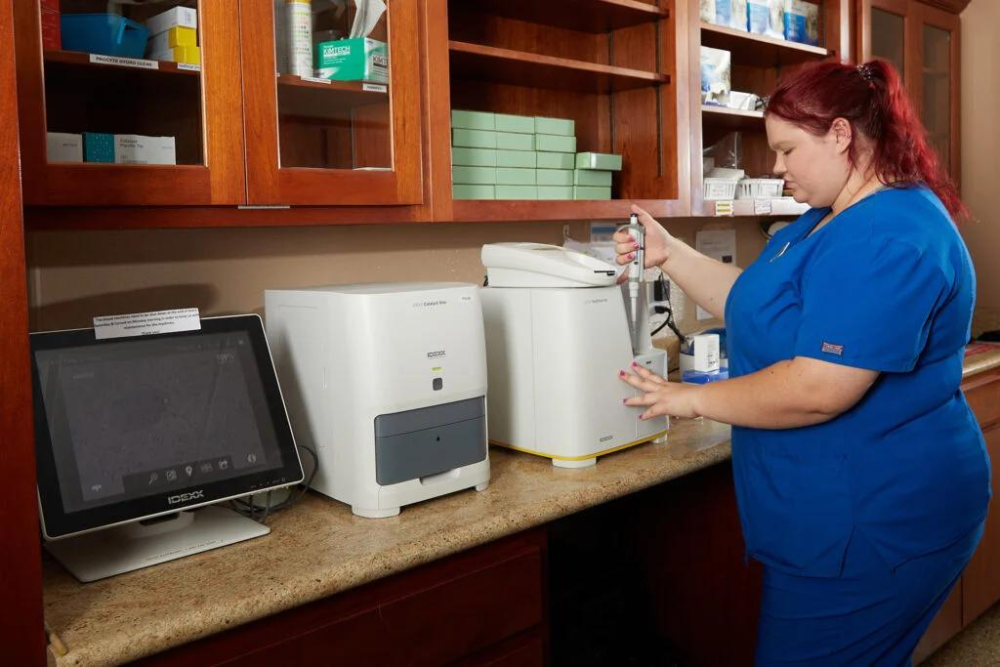Pet In-House Laboratory
Pinecrest Animal Hospital features a comprehensive Pet In-House Laboratory equipped to provide timely and accurate diagnostic testing for your pets.
Importance of Timely Diagnostic Testing
When your pet becomes ill or faces an emergency, quick and precise diagnostic test results are essential for determining the best treatment plan. Our Pet In-House Laboratory in Owosso, MI, is designed to deliver lab results within minutes, allowing our veterinarians to make informed decisions about your pet’s care without delay.
Quick access to lab results is crucial, especially when your pet is suddenly ill or in an emergency situation. Our advanced in-house laboratory allows us to perform a wide range of tests, ensuring that we can diagnose and treat your pet as efficiently as possible.
Benefits of Our Pet In-House Laboratory
- Timely Results: Quick access to lab results enables prompt diagnosis and treatment.
- Comprehensive Testing: Our range of tests covers various aspects of your pet’s health.
- Accurate Diagnoses: Advanced equipment and skilled technicians ensure precise results.
- Informed Decisions: Clear communication helps you understand your pet’s health and treatment options.
At Pinecrest Animal Hospital, we believe in involving pet owners in the decision-making process. Our veterinary team will explain which tests are most important for your pet and why they are necessary. We encourage you to ask questions and seek clarification to ensure you are fully informed about your pet’s care.
Comprehensive Blood Tests
- Blood Cell Counts: Changes in white blood cell counts, red blood cell counts, and platelet counts can indicate various conditions such as anemia, dehydration, infection, autoimmune disease, and certain types of cancer. These tests are vital for identifying the underlying causes of your pet’s symptoms.
- Blood Chemistry Tests: These tests assess liver function, kidney function, blood sugar levels, blood proteins, calcium and phosphorus levels, and pancreatic function. By analyzing these parameters, we can detect issues related to organ function and metabolic imbalances.
- Electrolyte Tests: Electrolyte tests measure sodium, potassium, and chloride levels in your pet’s blood. Abnormal electrolyte levels can occur due to dehydration or fluid loss from vomiting or diarrhea. Identifying these imbalances helps us determine if intravenous fluids or supplementation is necessary to restore your pet’s health.

